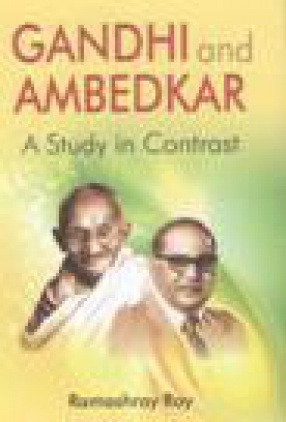
Ramashray Roy

Showing all 19 books

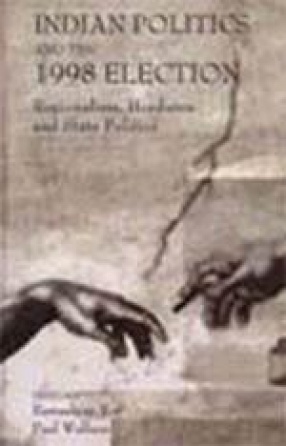

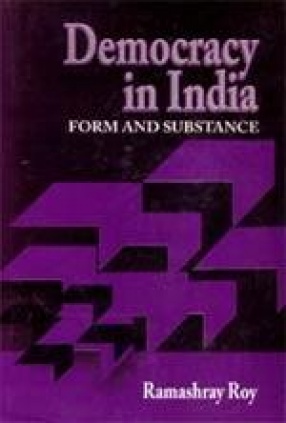


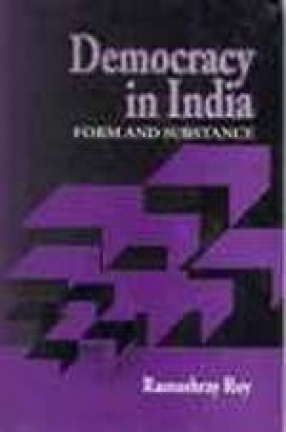

The book represents a radical departure from the genre of writings that deal with thought and works of M. K. Gandhi and B. R. Ambedkar, either singly or in a comparative framework, in a discursive manner or historically and chronologically. These two extremely important personalities left a deep and indelible imprint on the content and direction of Indian politics. However, these writings rarely delve deeper to identify the factors and forces that made them so ...
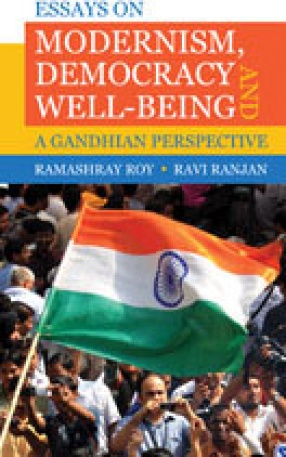
Has democracy ended human suffering, a task that the political system set out for itself? Or is democracy incompatible with modernity and, therefore, fails to achieve human well-being? If so, are we left with any option? The book asks these acutely political questions and states emphatically that democracy has failed to ensure the well-being of humanity as a whole. Further, it tries to answer this by exploring the Gandhian alternative to modernism and democracy ...
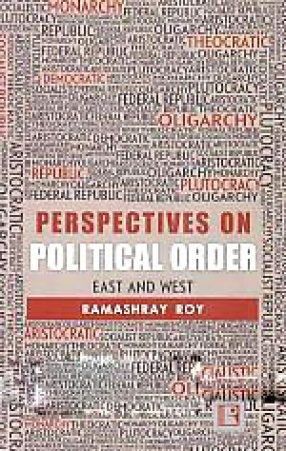
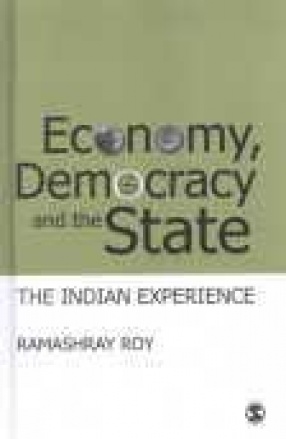
"This book offers a comprehensive picture of how economic forces have emerged as being of central importance in India and the kind of economic growth that the Indian polity has been able to achieve within the framework of democratic politics. It avers that the modern state is inextricably linked to economic growth and democratic politics.Economy, Democracy and the State: The Indian Experience explores the patterns of economic growth (both industrial and ...

This book is an attempt to initiate the process of probing deeply into the complex structure of the Vedic ideas with a view to presenting a correct perspective on political order from the Vedic point of view.India with a very ancient background of Vedic as well as non-Vedic traditions has pleaded for a political order whose central sustaining idea has been the concept of dharma in its ultimate all-engrossing metaphor of integration. The Vedic concept of man, ...

After a period of relative stability spanning the first three decades after in independence, Indian politics has undergone a sea change from the beginning of the 1980s. This period has witnessed the emergence of regional parties at the national level, the fracturing of the electorate, and the emergence of coalition politics. As a consequence, India's political scenario has become highly complex which is perhaps best exemplified by the 12th Lok Sabha (constituted ...

The essence of modernity lies in a paradox: while it represents an unceasing search for virtue, the elements that constitute the fundamental attributes of modernity make this search utterly futile. This paradox is, needless to say, at the root of modern problematique. Efforts to overcome it flounder the hard rock of yet another paradox: these efforts are inspired by, grounded in, and informed by different components that, in their interaction, have conspired to ...

The key to the understanding of the main currents of thought-ways and work-ways in the world of today is the phenomenon of modernity. The principal defining characteristic of modernity is the assertion that it is man qua natural man who is the source of meaning and order in the world. The consequent dedivinization has meant, among other things, the organization and functioning of political life and relations in India, as it is elsewhere else in the world are ...
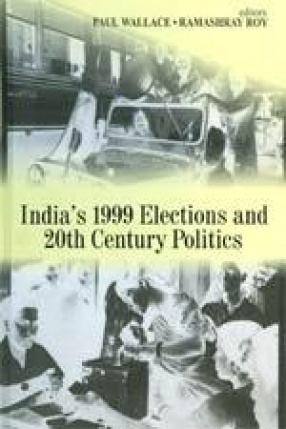
The parliamentary elections of 1999 - India's last elections in the 20 century - serve as a useful prism through which to examine the changing nature of Indian politics, both at the state and national levels, since independence in 1947. Bringing together reputed scholars from around the world, this volume describes and explains many facets of India's current political landscape - in particular, the recent emergence of a complex multi-party system at the national ...

The Parliamentary elections of 1999- India’s last elections in the 20th century – serve as a useful prism through which to examine the changing nature of Indian politics, both at the state and national levels, since independence in 1947. Bringing together reputed scholars from around the world, this volume describes and explains many facets of India’s current political landscape – in particular, the recent emergence of a complex multi-party system at the ...
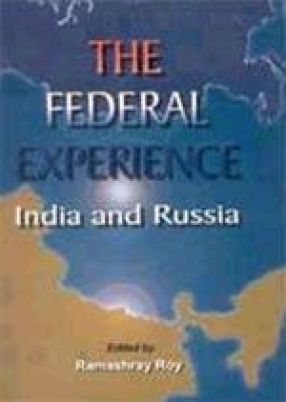
The Federal Experience: India and Russia is the outcome of joint venture of Indian and Russian scholars who joined together to have a fresh look at the experience of federalism in India and post-Soviet Russia. This fresh look has vielded and intellectually exciting and pragramatically salubrious result. The central themes of the book are defined by two important facets of federalism, i.e., federalism as a political arrangement and federalism as a source which ...
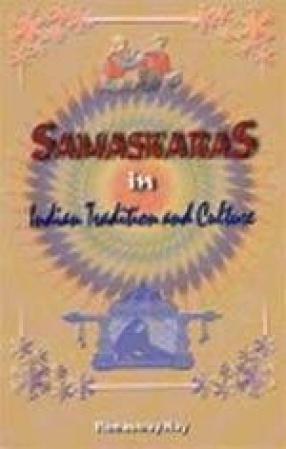
In explaining the meaning and relevance of Samskaras, the book presents a fine blending of the traditional and modern systems of knowledge construction. While explaining the meaning and relevance of samskaras, the book digs deeper into the Vedic cosmogony to uncover the real import of samskaras and their relationship with culture and its embedding worldview that draws its inspiration from the Vedic srishtividya. It demonstrates the significance of samskaras for ...

The book exposes the organic defects of formal democracy and demonstrates its weakness in satisfying the aspirations of the demos for participation and equality. Effort is made to take the discussion of democratic theory to a higher level where theory and history mingle to provide a better vantage point from which to view the phenomenon of democracy. Also, the theoretical perspective projected in Democracy in India: Form and Substance presents a critical account ...



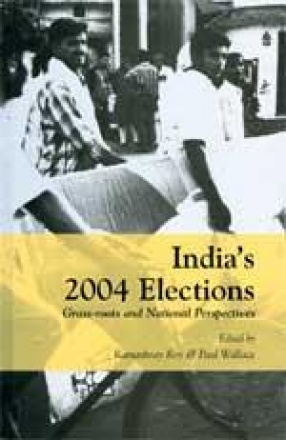
Building on their insightful work on India's 1998 and 1999 parliamentary elections, distinguished scholars Ramashray Roy and Paul Wallace's current book focuses on the landmark elections of 2004. The three volumes together provide the most definitive scholarly treatment of post-independence Indian politics at the national and state levels. Thematically divided into two sections, the book focuses on: The national, theoretical and comparative perspectives on ...
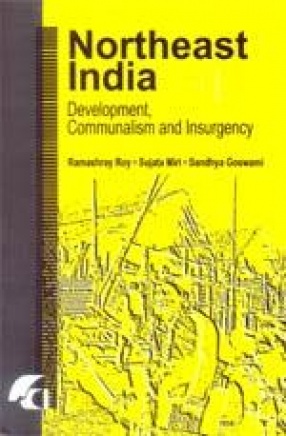
Northeast India: Development, Communalism, and Insurgency represents a pioneer effort in understanding the linkage among the phenomena of development, communalism, and insurgency. Heretofore insurgency has been viewed as breakdown of law and order and a challenge to the legitimate centralized political authority. The present book argues against this partisan view and underlines the fact that to treat it as a problem of law and order is to tum a blind eye to the ...

